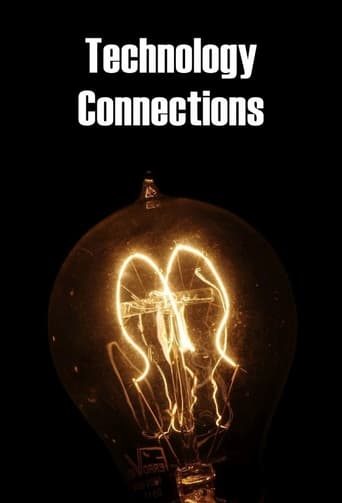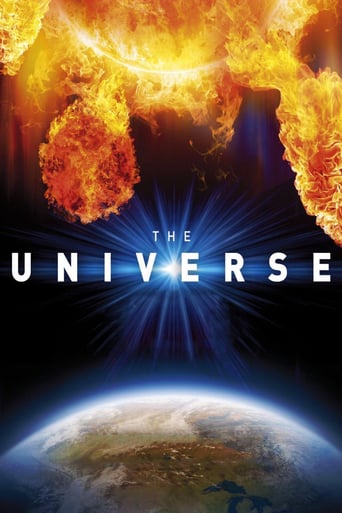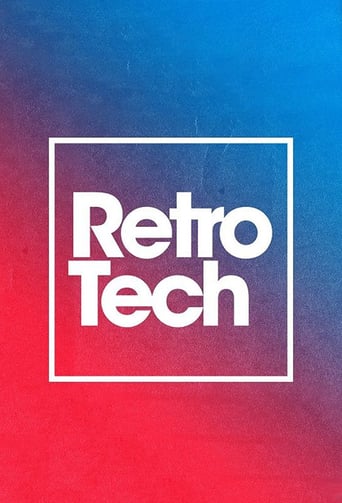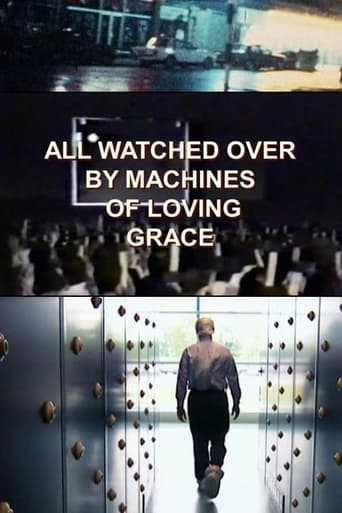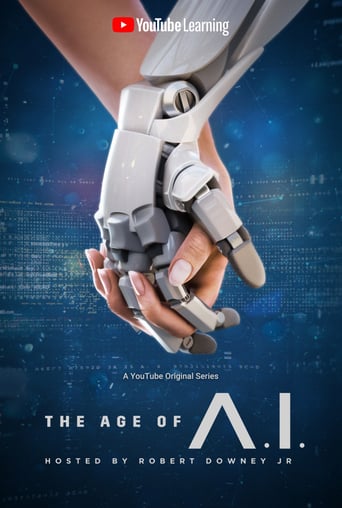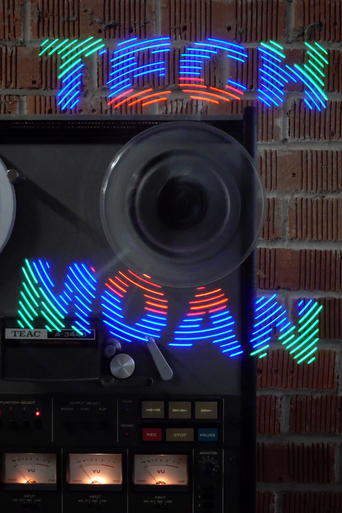Technology Connections Season 4
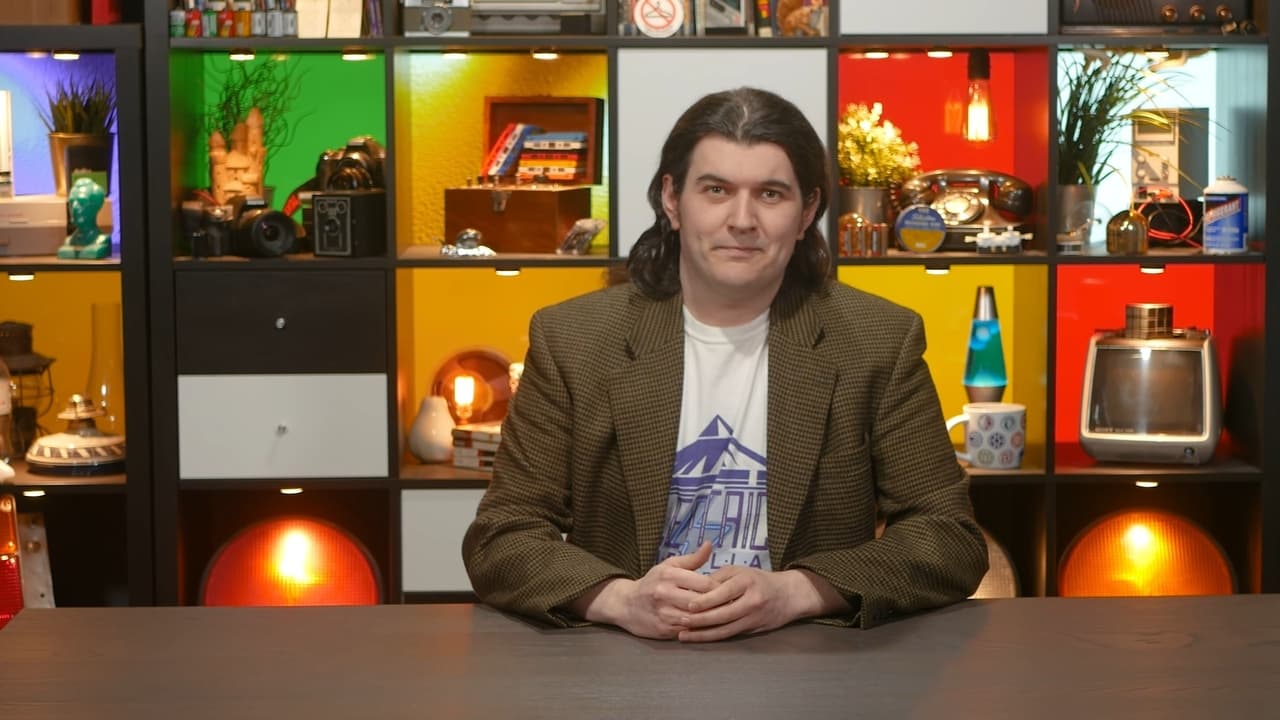
Technology Connections is a series of YouTube videos that explores numerous aspects of technological history, including how things work, the way things developed, and anything in between. There is no limit to what kinds of tech could be covered — one minute you may be learning about how electron guns draw pictures on an analog television, and the next you might be discovering that your modern toaster is a piece of junk.
Watch NowWith 30 Day Free Trial!
Technology Connections
2015
Technology Connections is a series of YouTube videos that explores numerous aspects of technological history, including how things work, the way things developed, and anything in between. There is no limit to what kinds of tech could be covered — one minute you may be learning about how electron guns draw pictures on an analog television, and the next you might be discovering that your modern toaster is a piece of junk.
Watch Trailer
With 30 Day Free Trial!
Technology Connections Season 4 Full Episode Guide
The superheterodyne receiver may seem like a radio with a silly name, but in fact it’s a completely logical name that describes the key action these radios take to become excellent radios. The superhet solved a tricky problem in a clever way, and using our friend Algebra (as well as wave phenomena) proved to be the most effective way of tuning in a radio signal.
Over the years I’ve found that there are plenty of people who use captions, not just those who need them. But did you know that it took until the 1970’s for anyone to think of putting captions on TV? I can sort of understand that, since captions might be annoying if you don’t want them, but closed captioning would save the day and provide access to all, but only when needed.
How could I forget about the hmm-hmm light experiments? And/or; holy hard drives it’s already Decemberween? My how the year has passed in a flash. Just like these lights! HA! Yeah, so here’s the thing--I owed you this video. And honestly, the results were great! I have some more work to do (assuming no one listens to my plea toward the end) but now I know that what I want is at least vaguely possible.
I remember when LightScribe was first marketed, and let me tell you I thought it was *the* *coolest* *thing* to ever happen. Burning labels with lasers? No way! Well, it worked amazingly well. LightScribe wasn’t without its flaws, though, and in this video we’ll discuss a bit of its history, how it worked, and why it wasn’t a runaway success.
Ya know, I just love learning about the everyday things in our world that are meant to make life a little more accessible to those with disabilities. This video is about a small (but nearly universal) thing that elevators do to make life just a bit easier for the blind and visually impaired.
The time has come. What was once just a replacement for big black frisbees of sprially wavey soundy sounds has matured into a versatile, ubiquitous data storage solution. Would you look at that, progress on a disc! But that wasn’t all; many colors of books were published (neato, wouldn’t ya say?) and the disc went from a-thing-you-buy-with-stuff-on-it to a disc that you can put your VERY OWN stuff on it! Radical! And here’s some of that story.
Sometimes life throws curveballs. But rather than just get hit in the face, why not do something about them? This video is a mishmash of a project, some insight on Lead-Acid Battery technology, inverters, and applications. A bit different you might say from TC’s normal stuff, but what’s life without a little variety? *There are definitely different ways to charge lead-acid batteries, with different strategies optimized for different results. However, for general 12V applications, a large battery and a slow-ish charger for a car battery will be an A-OK combo.
Well, it’s time to answer that question that’s been burning in your minds. There’s lots of good stuff down here, so please to expand it to see!
This video is a supplement to the latest "real" video from this channel. There was a lot of interesting stuff here that got cut, so if this is the sort of thing you like--sit back and relax as you watch this loosely edited, not-at-all planned video.
If you’re among the 85%* of people who don’t know what an LED printer is, then prepare to have your mind mildly blown as I tell you about the common printer tech that may in fact by lurking in your home or office, but which you’ve been mistakenly referring to as a laser printer. *gasp*
Did you ever want to know a little more about the nuts and bolts inside a CD player? No? Well I’m afraid you’ll have to pick another video because that’s exactly what this one is! In it, I start with a taken-apart Magnavox CDB 260, and we examine what all the parts do, how they fit together, and how they work together to turn pits and lands on a plastic disc into your favorite electrosynthamagnetic musical sounds.
The Compact Disc. Just, like, radical man. Lasers making the music? What will the technology wizards think of next? In this video we take a first look at the compact disc and its underlying encoding. Soon we’ll be looking more into CD players and their laser pickup systems, so be sure to subscribe if you haven’t already!
These devices are a common sight in homes and businesses around the US and around the world. But what are they for? Why do we need them? This video explores the life-saving potential of the GFCI (known alias: RCD) and explains how they work.
Let’s talk a bit more about digital sound. Thanks to a mathematical theorem, we know that a bandlimited signal can perfectly be represented by a series of discrete samples that occur at twice the rate of the frequency of the bandlimit. OK, that’s hard to explain in a little descroption blurb, so the video is probably your best bet.
These days, listening to music on the analog formats of old has seen a massive resurgence. Whether it’s cassettes or vinyl, it seems analog is in and mp3’s are out. But digital sound is pretty freaking neat! This video discusses how it works and is the launching point for this, the final videos on sound reproduction.
There are studies linked below that demonstrate a tangible safety benefit of amber turn signals. You might want to check them out. Though it might be small, the benefit is demonstrably there. This has always bugged me, and no one talks about it. Our automotive lighting regulations in North America are stupid when it comes to tail lights. This video is about what is stupid, why it’s stupid, and what we could do about it.
Oh man, did this not go well for Sony. Sometimes clever engineering can really backfire, as was the case for Betamovie. Let’s learn a bit about it.
We need to talk about private home charging more than we do. 99% of our charging infrastructure already exists, and this is something that absolutely needs to be communicated and not enough people are doing. Here is my attempt. In short, no matter if it's a Chevy Volt, Bolt EV, Nissan Leaf, or any of Tesla's cars, you will most likely be charging it at home. It's the cheapest and easiest way to do it--creating your own charging infrastructure.
Is this haunted room actually stretching? The answer may surprise you! (barf) The stretching rooms at the Haunted Mansion are perhaps my favorite piece of hidden engineering at the Disney Parks. While only the Anaheim and Paris versions function in the fashion described in this video, it is still a neat effect regardless of how it’s done.
Now that we know why street lights are orange, let’s look at whether or not they should still be so. The answer isn’t as straightforward as it might seem. Although newer technology seems to surpass HPS in nearly all respects, there are still considerations to be made.
Ever wonder why street lights are orange? For such a fast-paced world technology-wise, it seems somewhat odd that we are still using such a strange color of light for outdoor lighting. Well it turns out it is still a pretty good light source, though with limited use and perhaps a not-so-obvious flaw.
Come with me as I take the Chevy Bolt EV through 183 miles of summertime driving. It was really hot out and most of the drive was spent at 70 miles per hour, but the car still did pretty well.
1080i in 1994. Wow. Really, perhaps as early as 1993, but it seems the first player was released in 1994. Anyway, what better way to end the saga on Laserdisc than by talking about MUSE Hi-Vision discs. And some other stuff, too!
Did you ever try to copy one VHS tape to another and find that it just, well, didn’t work? Macrovision was the clever creation of what is now TiVo that managed to confuse a VCR without causing too much distress to a TV. In this video, we find out what it is, how to spot it, and how it works (with a healthy dose of speculation).
Around the mid-2000’s, the LED traffic light began making its way onto the scene. Recent developments in LED technology meant that energy efficient replacements for the standard incandescent lamp were beginning to appear. Municipalities rejoiced with the energy savings they provided, but in cold climates they weren’t met with quite as warm a welcome. Not producing sufficient heat to melt snow on their lenses, some drivers became confused by ambiguous signals and caused fatal accidents. This video tells the tale of why this newfound “problem” generated harsh criticism to the new technology, and explains why this reaction is entirely dumb and regressive.
In this very chill and laid back video, we take a look at the Smith Corona PWP-3200, a word processing typewriter from the early 1990's. There were a number of products like this available, and while they are an interesting bit of technological history, they are really strange.
When I first made a video on analog color television, the thumbnail I created (and its explanation) caused nearly endless debate. I thought I'd try and clear this up a bit.
Sometimes, a company in Japan decides they're gonna give it all they got, and the result is a wacky machine like this. Pioneer, the company that brought you pretty much everything to do with Laserdisc, designed this wonderful series of machines which are both single side Laserdisc players and 5 disc CD changers. Due to the limitations of the Laserdisc format, a rather robotic solution was needed to do the job.
The original PlayStation is a pretty neat thing. Using the CD as a storage medium was a smart move. But, Sony needed to add anti-piracy features to the disc to prevent miscreants from making bootleg copies of Crash Bandicoot. This video tells the story of how that works, why it wasn’t infallible, and also proposes a potentially impervious solution (24 years late, though).
Well, it had a good run. Although Laserdisc could never really get off the ground, it had a reasonable showing in the high end video market. Intended as a mass market product, Laserdisc would never get there. But DVD... well that's a whole other story. In 7 or 8 years, DVD went from being introduced to being everywhere, and it is still selling pretty well in the face of streaming services such as Netflix. Just how long DVD can cling to life remains to be seen, but you can still stroll on into any big box store and pick up a DVD player and some movies to go with it. This video tells how DVD got started, and why it was able to succeed where Laserdisc failed.
Have you ever needed to light your fish tank with Chinese LEDs? No? Well, here's how. I'm sure the information will be incredibly useful. In any case, maybe you'll learn about how to use these new-fangled diodes of light.
If you lived in North America any time in the 20th century, you probably ran across one of these telephones. The Western Electric Model 500 and its subsequent variants were so ubiquitous that you almost couldn't go anywhere without seeing one, especially in the United States where it was standard equipment from the phone company. Even if you're not American, if you've seen any of our movies, you'll have seen this phone, too. A literal fixture of American life, this phone was inescapable. But its ubiquity also caused some filmmakers or TV show producers to get a little lazy. This video tells that story.
While Laserdisc certainly wasn’t the most successful format, it was among the most interesting. This video explores the evolution and features of the format, with a wide variety of sample clips.
Nothing zaps the range of an EV quite like winter. But how bad is it? Join me on a few trips with a Chevy Bolt EV, and we'll find out.
Laserdisc didn't have an easy start. In this video, we take a look at the first few years of Laserdisc's existence. Though many articles or videos talking about Laserdisc will blame the high cost of discs and the inability to record, those problems are only partially to blame.
These days, it seems everyone wants the latest and greatest equipment for the audio needs. But there's a lot of fantastic hardware you can find in thrift stores and enjoy today. I've found that with a little patience, you can find true high fidelity speakers from the best brands, and though they may need some TLC, I think the results are worth it.
Laserdisc seems to get a lot of retro cred these days. It gets featured as a technical oddity, but from today’s perspective, it might seem strange that it didn’t become the de-facto standard. Boasting many of the same features as the modern DVD, you would think it couldn’t possibly have received the cold reception it did. In this series of videos, we’ll find out why.
Roller coasters are pretty neat, I must say. But they rely on passive vehicles holding fragile humans while zooming around at high speeds. That can be a tough thing to manage safely, but it's not impossible. This video shows you a few ways it's done.
Free Trial Channels
Seasons


